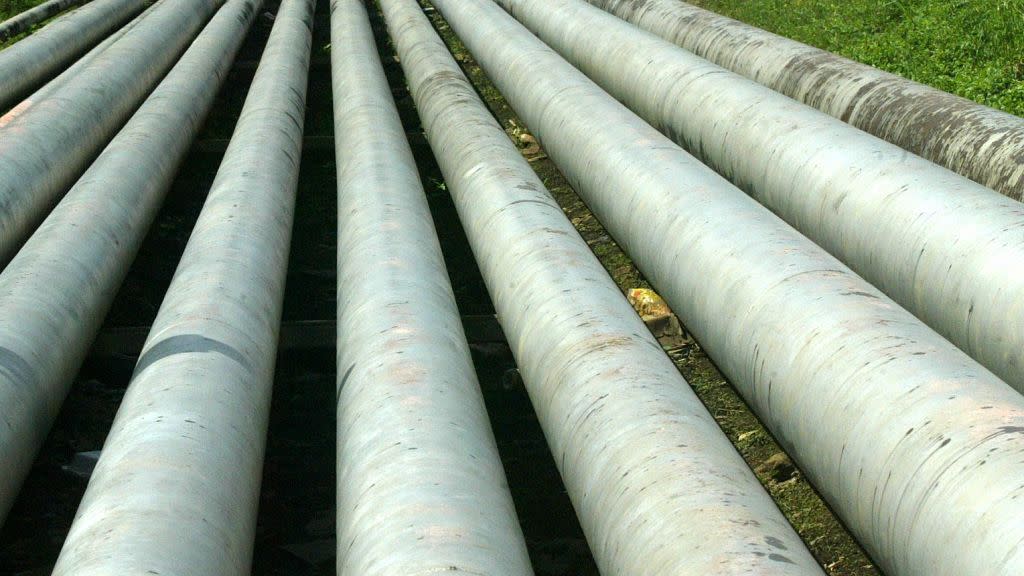A lifeline lost? Niger's hopes of escaping poverty through China backed oil pipeline are fading

A China-backed pipeline that would make Niger an oil-exporting country is being threatened by an internal security crisis and a diplomatic dispute with neighbouring Benin, both as a result of last year’s coup that toppled the West African nation’s democratic government.
The 1,930-kilometer pipeline runs from Niger’s Chinese-built Agadem oil field to the port of Cotonou in Benin. It was formally launched at the end of last year and is designed to help the oil-rich but landlocked Niger achieve an almost fivefold increase in oil production through a €373 million deal signed in April with China’s state-run national petroleum company. Benin profits from transit fees.
But it has been stalled by several challenges, including the diplomatic disagreement with Benin that led to the pipeline’s closure last week. There also has been an attack last week by the local Patriotic Liberation Front rebel group, which claimed to have disabled a part of the pipeline.
"A messy situation"
The Patriotic Liberation Front is fighting for the release of former president Mohamed Bazoum, who was overthrown in a coup last July.
It has threatened to target oil installations and called on the Chinese companies that run the pipeline to end their support for the military regime.
Analysts say the crises could further hurt Niger, one of the world’s poorest countries which funds most of its budget with now-withheld external support in the aftermath of the coup.
“It is a completely messy situation and the only way for a resolution is if both administrations directly engage and resolve issues,” said Ryan Cummings, director of Africa-focused security consulting company Signal Risk.
One major concern is how the stalled pipeline operation might impact Niger’s overall economic growth. The World Bank had projected that the West African nation’s economy would rebound and grow the fastest in Africa this year at a rate of 6.9%, with oil exports as a key boost.
The diplomatic tensions with Benin also date back to July when President Bazoum was deposed in a coup, resulting in the West African neighbours closing their borders with Niger.
Benin, alongside other neighbours, has now reopened its border with Niger, but Nigerien officials have refused to open theirs, accusing Benin of hosting French troops that they say pose a threat to the country after Niger severed military ties with France. That has led Benin’s president, Patrice Talon, to make the oil exportation through its port conditional on the reopening of the border.
Both countries are losing out economically, with Benin also being deprived of millions of dollars in transit fees. Observers say the impasse is worsening regional tensions since the coup, which came after a string of other military takeovers. It has pitched Niger against the Economic Community of West African States, or ECOWAS, which usually mediates on such issues.
Chinese mediation buried by escalating tensions
With Niger tilting towards Russia in its diplomatic shift and Benin aligned with France and the West African bloc, China has tried to step in and resolve the impasse and benefit from its investment in the project.
But even Beijing’s efforts, which resulted in the first lifting of oil from the Agadem field in May, collapsed as the diplomatic spat escalated further.
Benin this week convicted and imprisoned three of five Nigerien oil workers it recently arrested at the Beninise port after they crossed from the border and were accused of “use of falsified computer data.” Their arrests prompted Niger to shut the pipeline last week, with a senior government official alleging that their oil is being “stolen by other people.”
A big concern for Niger’s military government at this stage is “whether they have the requisite fiscal capacity to keep paying for public services” following the coup, which has made it unable to meet some of its financial obligations such as debt repayment and infrastructural funding, Cummings said.
The junta in Niger "definitely have to be more cautious in handling the financial position of the country” amid the ongoing crises, he said.


